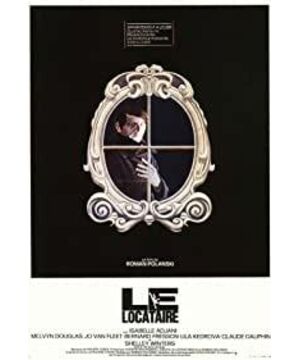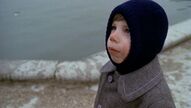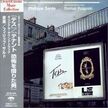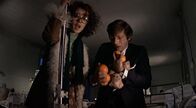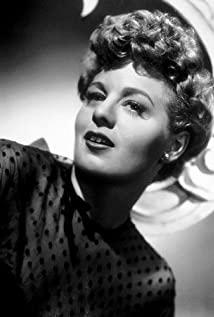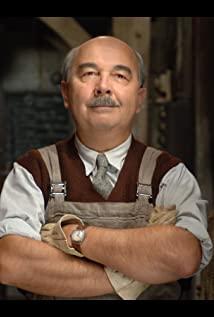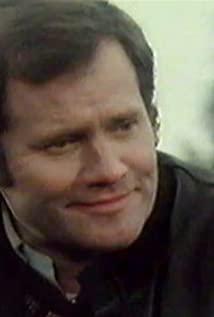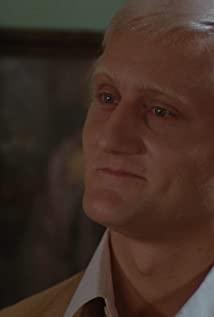"Strange Tenants" tells the story of a Polish youth named Tarkovsky who rented an apartment in a run-down building in Paris. The former tenant of this apartment committed suicide by jumping off the building. Tarkovs Ji took this convenience to move in. He found that other tenants in the building, including the landlord, were very unfriendly to him, and proposed an unusually harsh system: no noise at night. As long as he makes a little noise, he will immediately receive annoying complaints. In addition, he also found that other people in the building wanted to jointly evict another tenant who made noise. Tarkovsky finally fell into a desperate situation. He seemed to know the reason for the suicide of the suicide tenant Simon Zhou, and he pushed himself step by step towards the end of Simon Zhou.
Regarding this movie, some analyses say that it is the persecution of people in a weird environment, and some say it is a psychological movie that is imprisoned and perverted. In my opinion, this movie is not a horror-themed movie, it is a projection of Polanski's identity and experience. This person, who has been banished, wandered, and even homeless, condensed bitterness and despair on Tarkovsky, a sensitive young man, and eventually killed him in this strange house. In a society where there is no one to rely on.
The metaphor of the house,
Tarkovsky was dissatisfied after receiving complaints from neighbors, but what made him more frustrated was that his friends around him would not suffer such troubles: he saw with his own eyes how his colleagues came back. Complaining against his neighbor, Stella’s friend does not have to be constrained to own his own house. Even his lover Stella’s house is more exquisite than his, but his own apartment is rundown and does not have a separate bathroom. He has to endure the neighbor’s Harshness and indifference, and the shadow of a woman who committed suicide by jumping from a building lingers.
On the one hand, he is introverted and weak, and it can even be said that he is ignored because of his guilt and kindness. On the other hand, if Tarkovsky has to find such unfair treatment from it, it is that he is a foreigner. Although he has repeatedly emphasized that he has obtained a French ID card, people in this country still think that he is an outsider, a stranger from poor Poland. (When reporting the case at the police station, the police said, "Poland, that is a poor country." Polanski also spent his childhood in France.) Tarkovsky is sensitive and fragile because of his lack of identity. He is unable to resist the potential foundation, even if he resists, what will be the result? When he refused to sign the joint expulsion letter, the grateful tenant's revenge on other people was just a counterproductive push to the point where he became a target of public criticism. He had to compromise and create the same disaster for himself. Don't let others suspect that he did something bad to them.
Tarkovsky has always been in an environment of rejection and squeeze, but this environment requires him to remain quiet. "Keep quiet" is by no means as simple as not making noise. Quietness is the deprivation of the right to speak. It requires you not to blatantly resist no matter what kind of injustice you suffer. It is a means to remove your personal identity. When I saw this, I discovered how the setting of this building resembles a totalitarian system: no sound is allowed, people are restricted but not communicated, and information and layout are like cold machines, all seeming incomparably secretive. Including a hole in the wall of the apartment with a tooth hidden in it. The knocked out tooth also metaphors the deprivation of the shattered right to speak. Polanski himself was the persecutor of that period of history: after World War II, Polanski’s hometown was invaded, his relatives were taken into concentration camps, his mother died in Auschwitz, and Polanski later Surviving and escaping, this experience became the shadow of his life. If the metaphor of Polanski’s building is totalitarianism, the real persecution in the subconscious is what makes Tarkovsky mad.
A mirror image of history,
Tarkovsky discovered that in the only bathroom of the building there were often people standing motionless and expressionless. Every time the people appeared were different. He looked at them with a binoculars but couldn’t find anything. Until one day he went to the mysterious bathroom.
Since Tarkovsky moved into the apartment, he subconsciously rejected it. In the movie, he only went to the bathroom once in a sleepwalking state. The bathroom was filled with strange ancient Egyptian symbols, but when he arrived in the bathroom in a panic, he found that he was holding a binoculars opposite, observing himself now.
Other directors, like David Lynch, have also used something like this: the woman who shuttles through the room in "Inland Empire." But what Polanski wants to express here is not just a heterogeneous and disordered sense of space. In my opinion, this is a history that has been observed in stillness and flow: Tarkovsky observes every time The people who arrive-stand still, each time they enter are different-flow, and finally Tarkovsky unknowingly sees himself as an observer, but the observer himself does not know that he will enter. Observed history. No matter who you are, you will inevitably be involved in this "entry".
It may be bold to speculate that the building is a concentration camp, and that the bathroom, painted with indescribable symbols and not belonging to any language system, is the "death room" that the Poles finally lead to: once they enter there, everything is silent and static. Because death is the end of everything.
His mother's death
Tarkovsky went crazy when he thought they were turning him into Simon Zhou, forcing him to also end in suicide. If it weren't for what he said, we can continue to think that this is the conjecture of a schizophrenic. Tarkovsky, dressed in women's clothing, stood by the window and said: "I think I'm pregnant." Simon Zhou, who committed suicide, did not disclose any information that she was pregnant. If it was Simon Zhou's ghost instructing Tarr. Cove said his own life experience, which has Tarkovsky's own metaphor, and this metaphor directly refers to Polanski's spiritual code. In my opinion, the spiritual tragedy of Polanski's ontology bears here the reappearance of the ghost of the mother.
Tarkovsky ran to the pool in the park and sat there, and saw a little boy crying because the model boat floated on the water. At this time Tarkovsky's eyes were aggrieved and sad. When a little boy After getting help from the woman, Tarkovsky slapped him. The little boy obviously reminded him of himself, or his own childhood. Tarkovsky already hates the reality of his existence in this world. On the surface, he hates birth and hates his mother for giving birth, and at the same time There is lingering pain for the death of his mother.
Why can you say that? Because when Tarvsky returned to the apartment, he had completely become Simon Zhou. If he is using a female image to cover his thoughts of suicide and justify himself, then he must first kill his mental mother to prevent himself from appearing, so he will not be persecuted to death, he will Can "successfully" escape this mechanism. In the end, he committed suicide by jumping off the building. At this time, he emphasized that he was not Simon Zhou but Tarvsky. The name Tarvsky was his last cry to the world. He ruled out his identity as Simon Zhou and re-established Tarko. He jumped once more for the self, Tarkovsky. Tarkovsky died twice. This time he pushed him firmly to death: he accepted the death of his mother mentally, and he returned to death. The beginning of life, the end of birth.
Both David Lynch and Polanski like to behave weird, but David Lynch’s weirdness is more caused by human spiritual consciousness, while Polanski is doing metaphors on the surface, but what he sees is all reality. Polanski once said, "I always hope that one day I can describe this heavy modern Polish history, but I don't want to mix in the misfortune of my childhood." But we don't mind and criticize. Behind this lonely, hard and extreme artist, there is a missing corner of the shadow that lost his mother and the paper boat, and shed tears of grievance.
View more about The Tenant reviews


